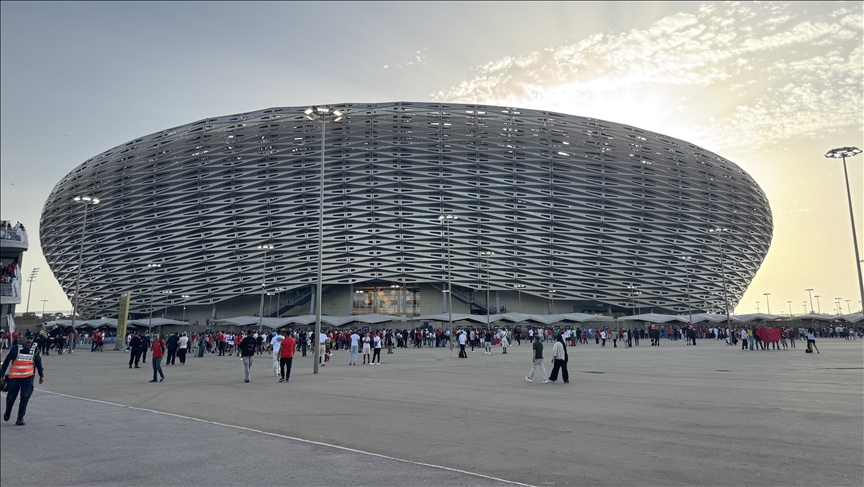Jewel of Moroccan Football: Prince Moulay Abdellah Stadium
68,500-capacity stadium, originally constructed in 1983, was completely demolished in 2023 and rebuilt in just 2 years

ISTANBUL
Prince Moulay Abdellah Stadium, described by FIFA President Gianni Infantino as "a true jewel," stands as one of the most important examples of the smart stadium concept.
Prince Moulay Abdellah Stadium in Rabat officially reopened on Friday, Sept. 5, with Morocco’s 5–0 victory over Niger in the 2026 FIFA World Cup African Qualifiers.
With a capacity of 68,500, it stands as one of the country’s largest and most modern stadiums.
Infantino, who visited the stadium in Rabat in July, described the newly constructed venue as a jewel of world football, highlighting its significance as more than just the stage for a single match.
The FIFA president stated that the stadium has placed Morocco among the elite of the global game.
"A football stadium today is much more than just a place to play football. It is a symbol for a country and a place to unite people, and this particular stadium is already a true jewel, showing the modern Morocco, a country projecting itself into the future and choosing football to unite the world," he said.
The stadium, whose construction began in 1980 and was completed in 1983, was entirely demolished in 2023 and rebuilt in just two years.

Prince Moulay Abdellah Stadium to host 2 major tournaments
The stadium, rebuilt to host various matches for the 2025 Africa Cup of Nations (AFCON) and the 2030 FIFA World Cup, was designed in accordance with FIFA standards.
Combining modern technology, environmental sustainability, and advanced digital infrastructure, the stadium cost approximately $75 million, with capacity increased by 21,000 to 68,500.
The stadium also boasts Africa's first hybrid natural-synthetic turf pitch, offering players a high-quality and durable playing surface. In addition, it is part of a larger complex that includes football training centers, underground parking, and a variety of additional sports facilities.
The stadium offers first-class accommodation in three categories: 110 boxes, five hospitality lounges accommodating nearly 5,400 seats, and designated areas for the disabled.
The complex also features an Olympic-sized swimming pool, football training fields, an indoor multipurpose sports hall, and a multistory underground parking garage with a capacity of 5,200 vehicles.
The facility incorporates solar energy systems and water recycling technologies to support environmental sustainability.
Setting new benchmarks for sustainable infrastructure in North Africa, the stadium is among the structures that prioritize environmental considerations, reduce carbon footprints, and serve as an example for future developments in the region.
2030 World Cup to be held in 6 countries across 3 continents
Morocco is preparing to host the 2030 FIFA World Cup alongside Spain and Portugal, following the 2025 Africa Cup of Nations.
The event is planned to be held in Casablanca, Tangier, Fez, Marrakech, and Agadir, in addition to the capital city of Rabat.
The 2030 World Cup will feature one match each in Uruguay, Argentina, and Paraguay.
The first matches of the tournament will be played in South America to commemorate the 100th anniversary of the World Cup. The remaining matches will be held in Spain, Morocco, and Portugal.
Anadolu Agency website contains only a portion of the news stories offered to subscribers in the AA News Broadcasting System (HAS), and in summarized form. Please contact us for subscription options.

